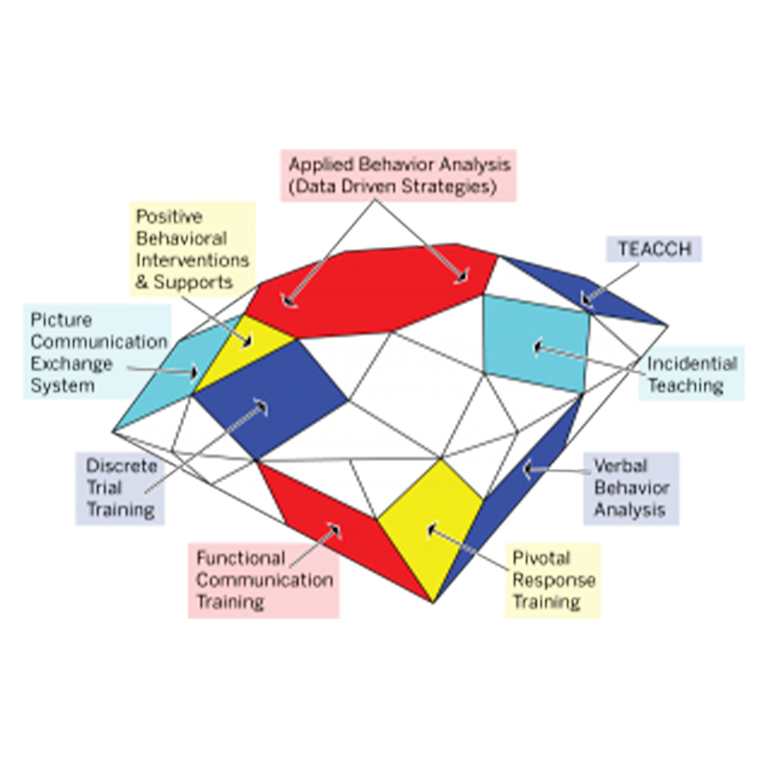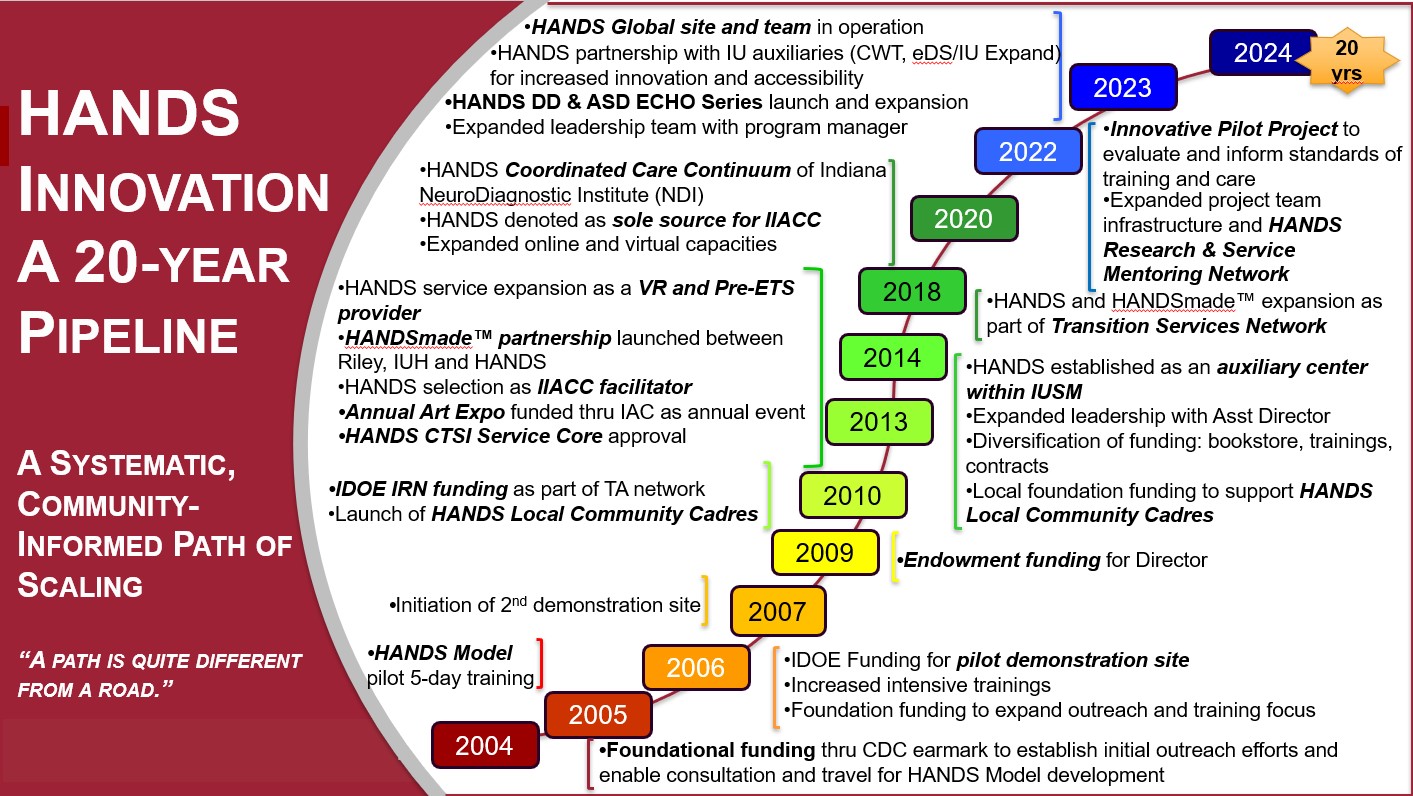The HANDS in Autism® Interdisciplinary Training and Resource Center is an integrated program focused on comprehensive and individualized interventions for individuals with ASD and related disorders. Our behavioral assessment and intervention strategies are all derived from an applied behavior analysis (ABA) model with use of data-driven practices that are evidence-based, individualized, and culturally responsive.
The specific combination of strategies represented below all emerge from that ABA and data-driven framework. All interventions are applied in an integrated and individualized manner to achieve the goal of formulating the safest, least restrictive, and most effective intervention for each individual.



